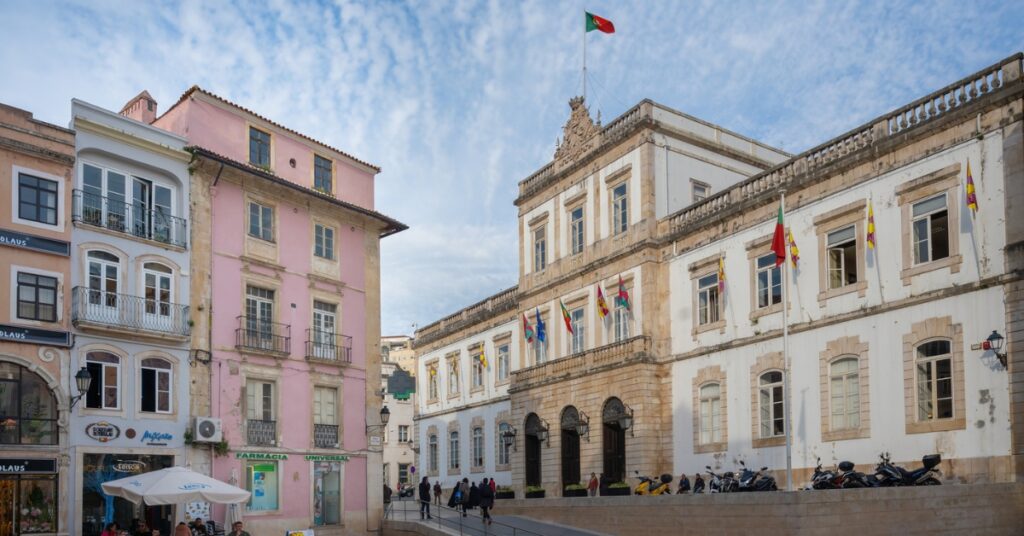
Portugal has scrapped its popular job-seeker visa after a new immigration law took effect on October 23.
The move limits visas to highly skilled professionals and ends an easy pathway that many migrants once used to find work in the country.
Work visas canceled overnight
Portugal’s new immigration law came into force on October 23, 2025, immediately canceling all appointments for job-seeker visas worldwide.
The law replaced the general visa with a “highly skilled work-seeking visa” aimed only at professionals with specialized technical qualifications.
Officials said that no one can apply for the new visa until fresh regulations are written. This has left thousands of hopeful applicants waiting for clarity, with embassies confirming that existing appointments through VFS Global and other agencies are void.
The Ministry of Foreign Affairs said that the change was required to “bring order” to the system and focus on attracting workers who fill skills gaps rather than entry-level jobs.
New rules for migrants
The reform, known as Law No. 61/2025, also ends the “Manifestation of Interest” route, a process that once allowed migrants to enter as tourists, find work, and later apply for residence.
All pending cases under that system must be completed by December 31, 2025, or they will be dismissed.
Portugal’s Agency for Integration, Migration and Asylum (AIMA) said that the new rules will “reduce delays and improve control.” Immigrants must now show that any administrative delay has directly harmed their rights before taking legal action against AIMA.
Family reunification has also become tougher. Couples without children must prove at least 15 months of legal residency before applying, while those with children can apply sooner.
Industries warn of labor shortages
Business groups have warned the sudden visa cancellations could worsen staff shortages in hospitality, agriculture, and construction.
According to Eurostat, Portugal already faces around 58,000 job vacancies, including 70,000 in construction and 49,000 in tourism and hospitality.
“Hotels that have two or three restaurants may have to close one of them, and in other cases, hotels may close some rooms because they don’t have the staff to clean them.,” said Hélder Martins, president of the Algarve Hotels Association.
The Portuguese Hotel Association’s Cristina Siza Vieira added that the new rules could make an already fragile labour market even more difficult to manage.

Government defends stricter policy
Prime Minister Luís Montenegro said the overhaul is designed to stop abuse of hospitality and ensure migrants enter legally through controlled channels.
Supporters of the law, including the centre-right Democratic Alliance and the Chega party, argued that it was necessary to restore public confidence after years of backlogs and irregular entries.
Opposition parties on the left called the measure excessive and warned that it may harm Portugal’s image as an open and welcoming country.
Alternative visa options
While job-seeker visas are suspended, other residence routes remain active. These include the D7 passive income visa, D8 digital nomad visa, and D2 entrepreneur visa.
Highly qualified workers can still apply under the D3 visa, and the Golden Visa program continues for large investors.
Immigration lawyers say that many will now look to other EU countries, such as Germany, Spain, or the Netherlands, which still offer broader job-seeker schemes.
What happens next
The government has not set a date for the new “highly skilled” visa to open. Until then, thousands of potential migrants, including many from Brazil and other Portuguese-speaking nations, remain in limbo.
The success of the policy will depend on how quickly regulations are finalized and whether Portugal can balance tighter controls with its ongoing need for foreign labor.

Changing travel rules across Europe
Portugal’s stricter visa system adds another layer of regulation for people planning to visit or work in Europe.
For short-term travelers, the new Entry/Exit System (EES), which began rolling out in October 2025, will record every entry and exit through digital fingerprints and facial scans instead of passport stamps.
By 2026, the upcoming European Travel Information and Authorization System (ETIAS) will also require visa-free visitors from 59 countries to apply for online approval before traveling.
Together, these systems mean all non-EU travelers, including those heading to Portugal, will face tighter checks and greater data monitoring.
For long-term visitors or migrants, Portugal’s tougher laws close older, easier routes to residency, meaning they must now secure approved visas before arrival and maintain full compliance once in the EU.
Ripple effects across EU
Portugal’s move mirrors a wider European shift toward more selective immigration. As EU nations tighten borders and digitise entry systems, many are aligning national laws with shared goals under Schengen.
The EU’s focus on “controlled mobility” — balancing economic needs with security — is now shaping how countries manage labor shortages, legal migration, and asylum backlogs.
While some governments welcome the change as a step toward fairness and order, it could make Europe less accessible to lower-skilled migrants.
What began as a Portuguese reform is now part of a continent-wide trend toward more regulated and technology-driven migration control.
Looking ahead
Portugal’s decision to tighten its immigration system marks a major shift in how the country manages foreign workers and residents.
By ending open job-seeker visas and focusing on highly skilled applicants, the government aims to control migration more strictly and reduce administrative backlogs.
For many would-be migrants, the change signals a harder route into Portugal, and potentially a turning point for the country’s labour market.
What happens next will depend on how soon officials define the new visa rules and whether they can strike a balance between border control and the nation’s growing need for workers.
